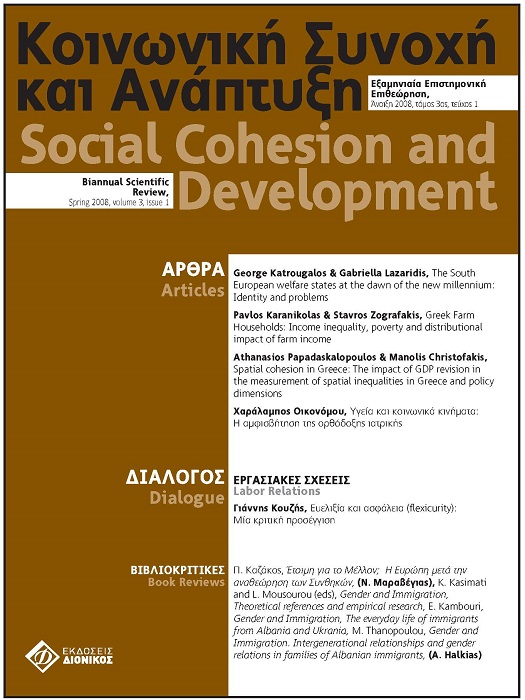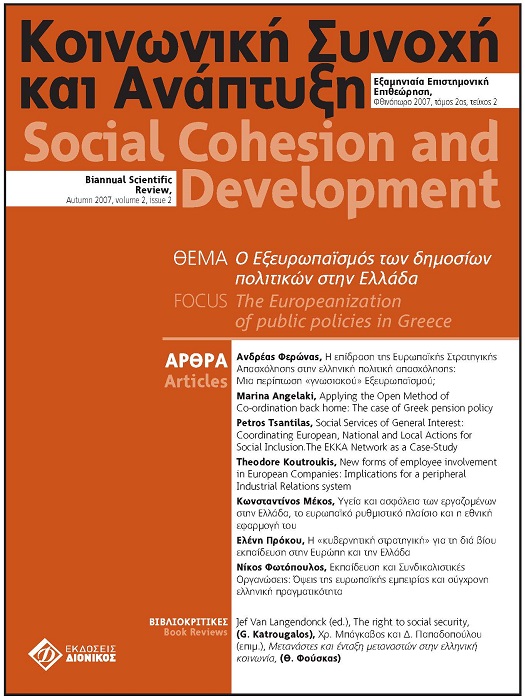Τhe South European welfare states at the dawn of the new Millennium: identity and problems

Abstract
The present paper examines the identity of
the “South European” deviation against
classical typologies. Against this background,
the argument presented some years
earlier by Katrougalos and Lazaridis (2003)
is revisited, bearing in mind later contributions
in the field as well as recent data.
The article then proceeds by presenting the
main traits of Southern European states, arguing
that they all share the basic characteristics
of the “state-corporatist” welfare
model. Nonetheless, important differences
can be discerned among them, while some
seem to share more common features with
France than with the other members of the
Southern cluster. These differences are in
turn attributed to their historic traditions,
and in particular the dissimilar weight of
patronage and clientelism.
Article Details
- How to Cite
-
Katrougalos, G., & Lazaridis, G. (2016). Τhe South European welfare states at the dawn of the new Millennium: identity and problems. Social Cohesion and Development, 3(1), 5–25. https://doi.org/10.12681/scad.8897
- Issue
- Vol. 3 No. 1 (2008)
- Section
- Articles

This work is licensed under a Creative Commons Attribution-NonCommercial-ShareAlike 4.0 International License.
Authors who publish with this journal agree to the following terms:
- Authors retain copyright and grant the journal right of first publication with the work simultaneously licensed under a Creative Commons Attribution Non-Commercial License that allows others to share the work with an acknowledgement of the work's authorship and initial publication in this journal.
- Authors are able to enter into separate, additional contractual arrangements for the non-exclusive distribution of the journal's published version of the work (e.g. post it to an institutional repository or publish it in a book), with an acknowledgement of its initial publication in this journal.
- Authors are permitted and encouraged to post their work online (preferably in institutional repositories or on their website) prior to and during the submission process, as it can lead to productive exchanges, as well as earlier and greater citation of published work (See The Effect of Open Access).



